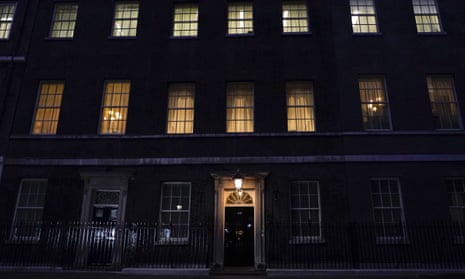Police will ask aides of Boris Johnson named in Sue Gray’s report as having attended parties during lockdown if they are guilty and therefore accept a fine under regulations passed by the government they work for.
Some could be asked in writing to accept or dispute Gray’s findings, while others will have to be interviewed under caution. The investigation is expected to take at least several weeks, with detectives prepared to expand their inquiry if further evidence emerges.
The Metropolitan police will take Gray’s evidence and ask those she finds to have attended gatherings in Downing Street and Whitehall whether they have a reasonable excuse, sources say.
The sources add that, while the lockdown-breaking offences are relatively minor and do not result in a criminal record if paid promptly, any attempts to lie, or to get others to lie, could result in an escalation of Scotland Yard’s inquiry, with perverting the course of justice investigations launched. Suspicion of committing such offences could lead to arrest, full criminal investigation and potentially time in jail if convicted.
One police source said: “Lying could lead to a charge of conspiracy to pervert the course of justice,” and cited the example of drivers facing motoring fines whose lies amounted to more serious offences, such as the former MP Chris Huhne, who ended up in jail.
A second source said “conspiracy to pervert would seem to apply” if concerted attempts were made to thwart the police investigation.
The Met decided which of the alleged string of parties it would investigate on Tuesday, just before the commissioner, Cressida Dick, made her announcement. Gray’s broad findings were passed to the Met special inquiries team, which matched them with the coronavirus laws at the time.
The Met has asked Gray for the underlying evidence supporting her conclusions, such as data showing which people attended parties from emails or security cards. One source said detectives were “waiting to get under the hood” of the evidence gathered by Gray, with the Met investigation at an early stage.
One police source with extensive knowledge of policing the Covid regulations said: “You do not need to show criminal intent … simply showing you are there is enough, so a photo, or email might be enough to issue a ticket.”
Met officers will trigger the fines process by sending paperwork to the criminal records office based in Hampshire, which technically issues the fine, which arrives by post with details of how to pay. The fines will vary according to which regulations were in place at the time, as the penalties changed. 118,963 fines were issued in England and Wales until 19 December 2021.
Some people may choose to take the fine, while anyone who denies their guilt could force a fuller police investigation taking more time and resources, as police then would have to get cases ready for a magistrates court hearing. A former Met detective, Simon Harding, commented: “You can’t force people to talk.”
The investigation will have to see what evidence from Gray would be admissible in the English court system, and therefore may have to redo some of her team’s work.
A source added other allegations would be looked at if evidence not found by Gray or new testimony emerged, amid claims some Johnson aides would not trust the civil servant’s inquiry, which was reporting to the prime minister, but may be more forthcoming with police officers independent of government.
The Met’s investigation was announced after weeks of the force declining to do so, saying it rarely investigated offences retrospectively. Dick said retrospective action had been taken against her own officers, and this includes 31 officers issued with £200 fines for having their hair cut by a barber visiting an east London police station.
It also includes nine officers photographed dining with each other in a cafe, with both events taking place in January 2021.
The Met investigation into the Downing Street and Whitehall parties will be overseen by the acting deputy assistant commissioner, Jane Connors, and Cmdr Catherine Roper. The Met has not named the senior investigating officer in charge.
